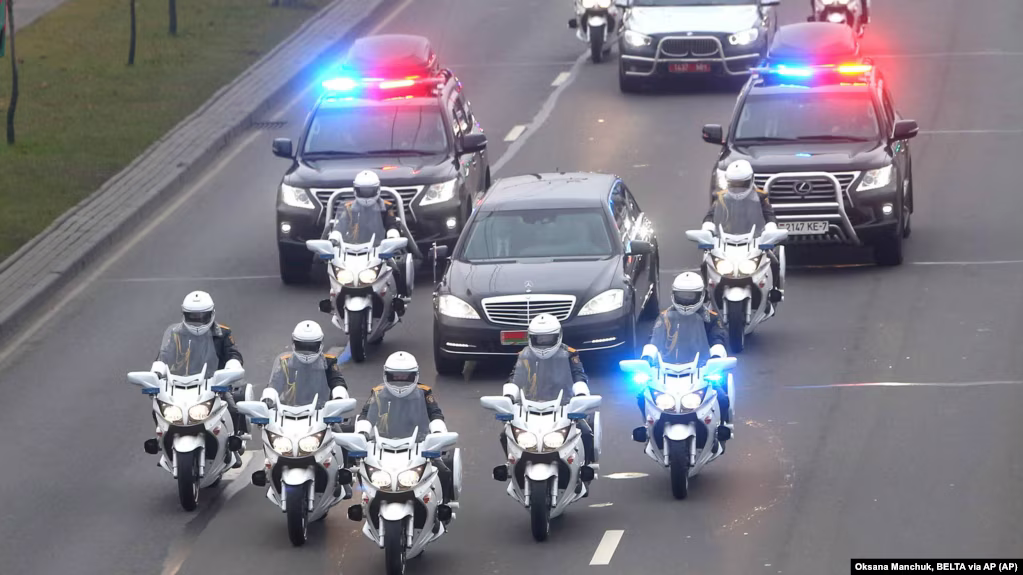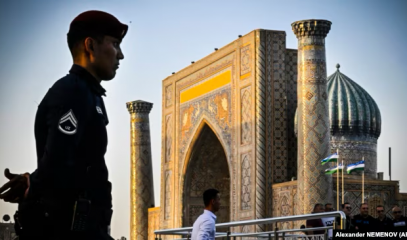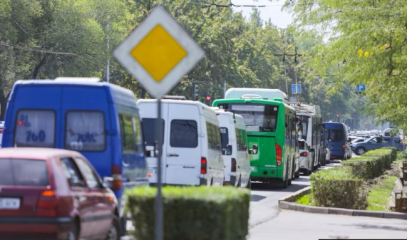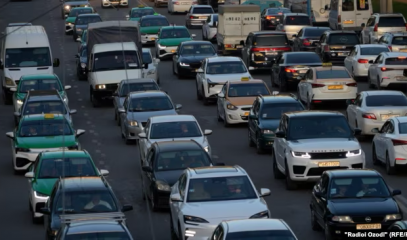Summits and traffic jams ‘paralyze’ Central Asian capitals
It is increasingly difficult for residents to move, with central streets cleared waiting for the motorcades to pass, while cars are lined up in columns on the side streets. Citizens are forced to walk in the scorching heat. In Tashkent, the ‘clean-up’ of the city center can take ‘extreme’ forms, with armored vehicles opening fire on cars that block the way.
Moscow (AsiaNews) - In the capitals of Central Asian countries, Dushanbe, Bishkek, Astana, and Tashkent, it is increasingly difficult to move through crowded streets, especially when high-ranking officials from other countries arrive to attend summits or meetings, and traffic ends up completely paralyzed.
In the best cases, citizens wait patiently for the blocked roads to reopen and transport to resume; in the worst cases, many end up being “temporarily” transferred to the countryside or other cities, as happens regularly in the Turkmen capital of Ashgabat.
Even in the scorching July heat, with temperatures above 40 degrees and no breeze, the inhabitants of Dushanbe experienced hellish days, only able to move around on foot, avoiding being stopped by police and traffic wardens stationed every 50 meters on the streets, where restaurants and shops had their shutters down.
The central roads remain deserted, waiting for the passage of the authorities' motorcades, while cars crowd hopelessly on the narrow streets of the suburbs. After the deafening sirens of various police cars and the parade of limousines with tinted windows, one can try to breathe a sigh of relief, even in the absence of cool air.
This is how the last few weeks have passed in almost all Central Asian capitals, with the historic visits of the President of Mongolia and his entourage of officials and businessmen. A report by Azattyk tells of citizens who arrived at work more than an hour late, receiving scolding and punishment from their superiors.
As Parviz, a Tajik journalist, explains, taxis that usually cost 18 somoni (just over a dollar) “during official visits charge between 60 and 70 somoni because they have to drive all around the city to get you close to your destination.”
In Tashkent, too, the ‘cleaning up’ of the city center to allow processions to pass can take extreme forms, as when in 2024 President Shavkat Mirziyoyev's security service opened fire on a car that was blocking the way, an incident that was captured on video and circulated on the internet.
Fortunately, the driver was not seriously injured, but he was charged with “acts of resistance to a public official.” A similar incident occurred the previous year, when machine guns were fired at a car that had not managed to clear the road in time, with the aim of “restoring order in the public space.”
When Italian Prime Minister Giorgia Meloni arrived in Uzbekistan last May, students were kicked out of university hostels located on the road between the airport and the center of Samarkand, forced to wander around other areas for the whole day, with classes suspended in schools.
The security measures in Bishkek were no less severe, again for the visit of Mongolian President Ukhnaagiin Khürelsükh, with roads closed “only while the motorcade was passing,” according to official notices apologizing for the inconvenience, but the city remained completely paralyzed throughout the day and even tourists in the Issyk-Kul area, 200 kilometers from the capital, were unable to return home due to the blockade of all roads.
The authorities issued traffic restriction notices with several delays and contradictions, always citing “the need for public order” as the reason, but many comments described these situations as “violations of freedom of movement.”










.png)










